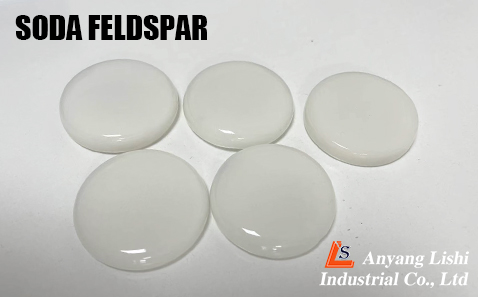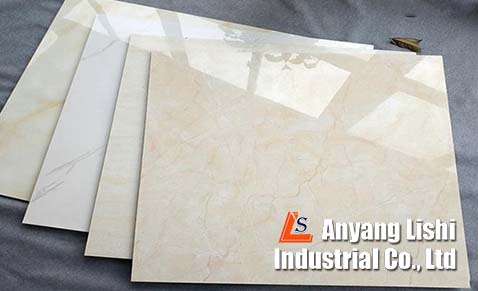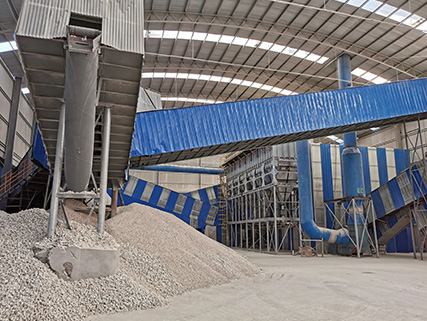
Albite, also known as sodium feldspar, is a significant mineral in the ceramic tile industry, playing a crucial role in the production of ceramic tiles. Its properties and contributions make it an essential component in the tile-making process. In this detailed description, we will explore the various aspects of albite and how it is utilized in the manufacturing of ceramic tiles.

Albite is a plagioclase feldspar mineral primarily composed of sodium and aluminum silicate. Its chemical composition includes sodium oxide (Na2O) and aluminum oxide (Al2O3), along with silica (SiO2). It is a common constituent of many igneous and metamorphic rocks and serves as an important raw material in the ceramic tile industry.
Albite is characterized by its pale color, typically white, light gray, or reddish-white. It possesses a glassy luster and can be transparent to translucent. Its hardness on the Mohs scale ranges from 6 to 6.5, indicating its suitability for various industrial applications. Albite’s low thermal expansion and relatively low melting point make it an ideal ingredient for ceramic tile production.

• Raw Material Preparation: Albite is extracted from mines and quarries, and then undergoes various processing steps to refine and purify it for use in ceramic tile production. The raw albite is crushed, ground, and then screened to obtain the desired particle size.
• Mixing and Forming: Albite is combined with other raw materials, including clay, silica, and other feldspar minerals, to create a ceramic tile body. These components are mixed in precise proportions to achieve the desired properties and characteristics. The mixture is then formed into the shape of tiles through processes like extrusion, pressing, or casting.
• Firing and Sintering: The formed tile bodies are subjected to high-temperature firing in kilns. Albite, being a feldspar, undergoes partial melting during this process, contributing to the vitrification of the tile body. This fusion helps in forming a dense and stable structure.
• Glaze Preparation: Albite is also used in preparing the glaze, which is applied on the surface of the ceramic tile. The glaze is a vitreous layer that enhances the appearance, provides protection, and adds specific functionalities to the tile.
• Glaze Firing: The tiles are further fired to fuse the glaze onto the tile surface. Albite’s low melting point is advantageous in this step, aiding in the smooth and glossy finish of the glaze.

• Thermal Stability: Albite’s controlled thermal expansion is crucial for preventing cracks and fractures in ceramic tiles, especially when exposed to rapid temperature changes.
• Durability and Strength: Albite contributes to the overall durability and strength of the ceramic tile, ensuring it can withstand the stresses of daily use.
• Glaze Formation: Albite aids in the formation of a consistent and attractive glaze on the tile surface, enhancing its aesthetic appeal.
Albite, being a feldspar mineral, contributes to the color and aesthetic properties of the ceramic tile. Its inherent color and ability to accept a variety of glazes and pigments allow for a broad range of design options, meeting diverse consumer preferences.
Conclusion:
Albite, as a primary component in ceramic tile production, demonstrates its significance through its unique properties and versatile applications. From raw material preparation to the final firing and glazing stages, albite contributes to the creation of durable, aesthetically pleasing ceramic tiles that adorn a multitude of spaces and environments. Its role in the ceramic tile industry remains indispensable, providing the foundation for beautiful and functional tile surfaces worldwide.

Whether you have questions or you would just like to say hello,Contact us!
Call Anytime:
+86 15837207537Send E-mail:
info@lsakminerals.comAddress:
Anyang City , Henan Province, China.